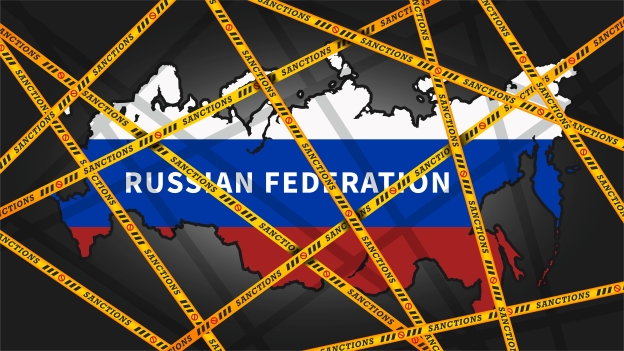
Paying staff in Russia as companies exit and complying with complex sanctions increase pressure on finance leaders.
Editor’s note: NeuGroup is running weekly special sessions on the Russian-Ukrainian crisis to help members navigate the financial consequences of the war. NeuGroup senior executive advisor Paul Dalle Molle, a former banker with extensive European experience, leads the discussions, and we asked him to share his latest insights and takeaways.
By Paul Dalle Molle
At this stage of the crisis, there are still, unfortunately, more questions than answers for corporate treasurers and their teams. They are struggling to take the right steps to help employees and businesses while respecting US and European sanctions as well as rules governing business activities within Russia. That said, as the war proceeds and the sanctions are published, thousands of people within treasury and on other internal and external teams are whittling away at these questions and helping to make the choices facing decision-makers clearer. This group includes lawyers, bankers, accountants, financial advisory firms and security advisors. Before delving into the details, two overall comments:
- Every multinational will strictly comply with sanctions. Some cynics have suggested that companies will find ways around sanctions, but I have seen just the opposite. Companies will do what they can to meet their obligations to Russian staff, suppliers, customers and regulators provided that their actions are permissible under sanctions.
- While some companies withdraw from Russia or suspend operations, they must remain completely devoted to sanctions compliance and respecting local rules. Corporates have responsibilities that require numerous tactical responses that include paying staff as they exit, mothballing facilities, paying bills and taxes and collecting invoices. Finance plays a critical role in most of these obligations.
Each company is unique. There are some common, major issues confronting all multinational companies, but the degree to which each issue affects a specific company relates to the nature of its industry and the corporate’s business model for Russia. For example, the problems in Russia facing a software company are quite different from those of a commodities firm or an industrial business. The answer to these questions and others will dictate the specific steps each corporate takes:
- How big is your local staff in Russia?
- Do you need to import supplies or export production?
- Do you have your own distribution network or use third parties?
- How is your local business funded—from retained earnings in rubles, by periodic injections of foreign currency capital or by local borrowing?
- How do customers pay you in Russia—are you a B2C paid by credit cards, or a B2B with traditional collections from indigenous Russian companies?
Even when a company pulls out or suspends operations in Russia, it means different things to different companies and their treasurers. So, keeping in mind that each specific corporate situation may call for unique answers, here are the most important topics that have emerged:
Paying staff in Russia, the top concern of corporates since the crisis began, introduces complexity. Right now, there is a conviction among treasurers and compliance specialists that it is permissible for the Russian subsidiary of a foreign company with RUB liquidity at a non-sanctioned bank in Russia to have that bank pay the company’s employees in RUB with a domestic funds transfer—even if some payments are made to employees with accounts at sanctioned Russian banks. But that same transaction would not be permissible if it arose from offshore and/or in foreign currency. Some companies are asking employees to open personal accounts at non-sanctioned banks to help further distance the companies from sanctioned banks, but this is a slow and imperfect process.
Similarly, the tactic of paying salaries in advance has been a hot topic. Several companies have done this, paying employees three months in advance to avoid impediments. But other companies were counseled against this precaution and some were even told that such advance payments are illegal in Russia.
Circumvention risk. Also, as always with sanctions, corporates need to be aware of so-called circumvention risk: US persons, as they are called by the Treasury Department’s Office of Foreign Asset Control (OFAC), cannot instruct non-US persons to engage in activity that would be impermissible for US citizens, such as dealing with a sanctioned bank, even in another currency. Members are consulting continuously with their legal teams to ensure that what they did last week is still permissible this week. Of course, if payments arise within the EU or are done in euros, the EU sanctions regime would apply and so the same careful analysis of permissible activities is taking place for the EU sanctions.
Local Funding is extremely important and the focus of intense corporate activity. It appears that a new Russian regulation allows banks in Russia to lend to multinational companies only for salaries, rent and tax payments. If correct, this is relatively good news, as companies are very focused on paying staff, but bad news as it would appear to eliminate borrowing for all other working capital needs. For some companies that do not generate sufficient local free cash flow, that could mean finding compliant ways of bringing capital into the country or ceasing activity. Companies are systematically seeking to add RUB liquidity lines from non-sanctioned banks.
Additional banking partners are being sought by multinationals. Companies must stop working with the sanctioned banks, so many are trying to add new relationships with the biggest foreign banks in Russia (SG Rosbank, Raiffeisen, Unicredit and Citibank), as well as other European and American banks, and Asian banks. Related to this is an attempt to understand how the Chinese CIPS payments clearing system could be used to transfer funds in and out of Russia without using sanctioned banks. This appears to be feasible, albeit cumbersome and potentially expensive, as the amounts will originate in USD or EUR and then be exchanged for CNY and finally into RUB.
Hedging seems to have dried up. From what we have heard, there is no liquidity for rollovers and new trades, and settlement of existing trades are being completed, but sometimes with delays.
Abiding by local Russian rules is difficult. Members say they have been told by counsel that companies that run unprofitable businesses in Russia for two years risk having their businesses confiscated. So corporates must adapt their transfer pricing system to consider the new costs of operating in that environment, to avoid generating losses in Russia. But should they do that immediately, or wait to see what happens with the war and sanctions? Such transfer pricing adjustments might need to occur on a weekly basis during wartime conditions. Members have also been told that they risk revocation of their business licenses if they fail to respect Russian rules about corporates paying employees on time and maintaining certain balance sheet ratios.
Some legitimate commercial payments seem to now be nearly impossible due to sanctions or Russian rules. For example, a company that booked credit card payments from Russian residents and now must reverse those payments can no longer credit those customers because the credit card companies have suspended operations in the country. Will they send checks? Is there another solution? And if collections are due from customers who pay from sanctioned banks, how can the company receive the funds without violating sanctions?
The rule requiring companies to convert 80% of FX proceeds into rubles has also raised more questions. The rule is retroactive to January 1. Members seem unclear about the deadline for converting the previous proceeds and have major accounting and liquidity management headaches to isolate the funds.
Even if individual employees and executives working at US and European multinational companies are appalled at the unprovoked invasion and war, as corporate executives they must act in the best interests of their employees, customers, and shareholders. Until companies make the strategic decision to pull out of Russia entirely—and perhaps for months or years afterward—treasury and other finance teams will try and navigate both sanctions and local Russian business rules as best they can, being good corporate citizens in all the jurisdictions in which they operate.


